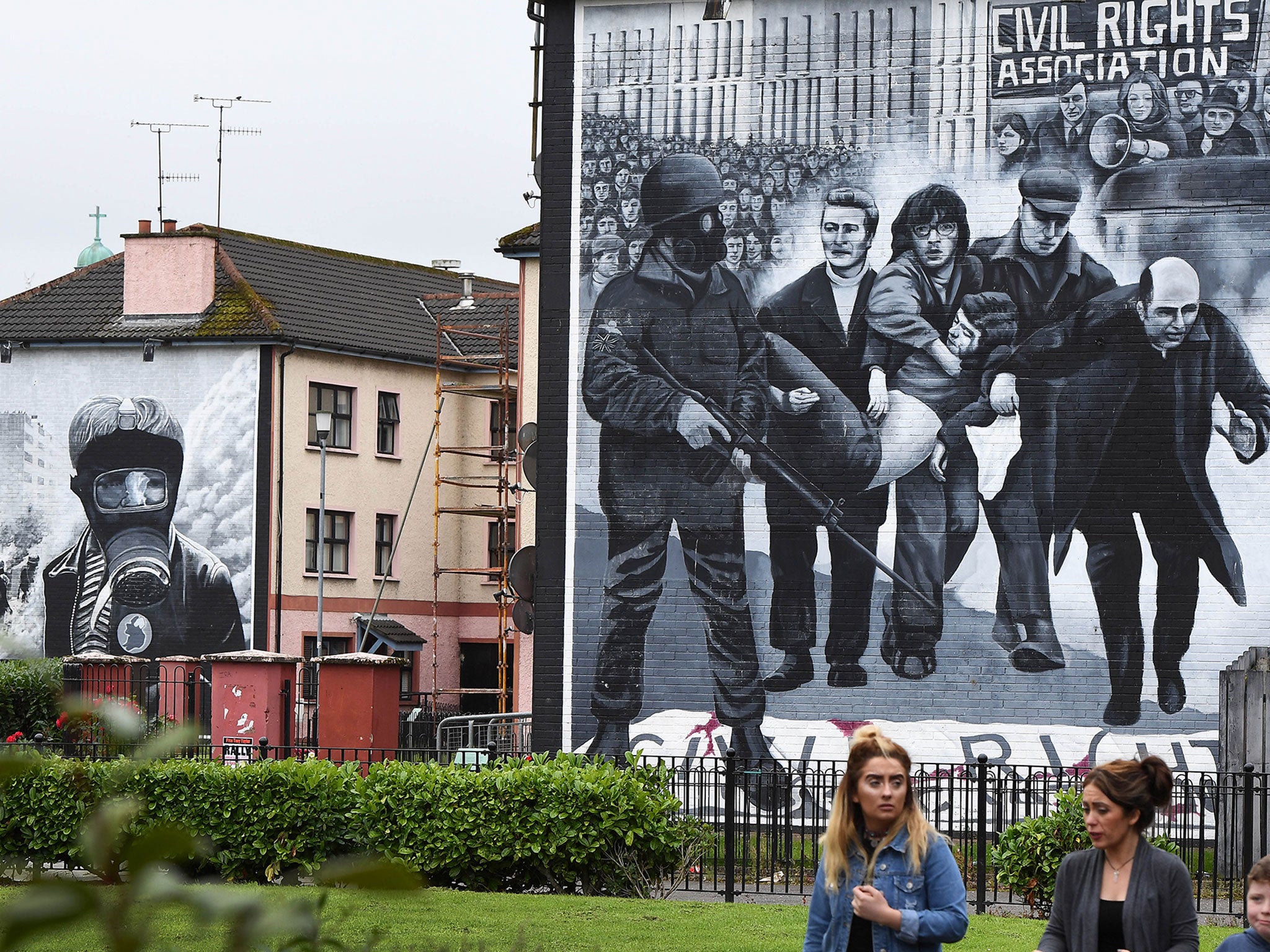Government launches consultation on killings during Northern Ireland's Troubles with no amnesty for British soldiers
Defence secretary understood to be among ministers unhappy at prospect of veteran servicemen being prosecuted

The government has formally announced a consultation to investigate killings during the Troubles in Northern Ireland, amid a political row concerning the exclusion of an amnesty for military personnel.
The four-month public consultation will seek to canvass views on a series of new mechanisms to investigate, document and uncover the truth around killings during the 30-year conflict.
Late last year the government, which will spend £150m setting up the new institutions, indicated that a statute of limitations protecting security force members from historic prosecutions may be added to the consultation.
The prospect of such a move was met with a wave of opposition in Northern Ireland. Both Sinn Fein and the Democratic Unionists voiced concern, as did the Irish government and representatives of the victims.
The DUP and some military veterans in Northern Ireland made the point that any such statute would, by law, have to be extended to also cover former paramilitaries – something they branded unacceptable.
Senior DUP figures favour protections for former service personnel as part of wider legislation that focuses on all conflicts, including Iraq and Afghanistan.
While the decision to remove the contentious proposal from the consultation was therefore widely expected in Northern Ireland, it has nonetheless generated opposition both by UK ministers and on the Conservative backbenches.
The defence secretary, Gavin Williamson, is understood to be among ministers unhappy at the prospect of veteran servicemen being prosecuted.
Karen Bradley, the Northern Ireland secretary, insisted the new mechanisms would be “balanced, proportionate, transparent, fair and equitable”.
“I welcome the opportunity to launch the consultation today, seeking views on how to address the legacy of Northern Ireland’s troubled past,” she said.
“Since my appointment as secretary of state I have heard deeply moving stories about the suffering that victims and survivors have lived with for decades, and the profound and lasting impact on individuals, families and communities.
“This consultation provides the opportunity to begin a process that has the potential to provide better outcomes for victims, survivors and their families. There is broad agreement that the current complex system does not work well for anyone and we are determined to put that right.
“In an area as sensitive as the troubled past in Northern Ireland, it is important that we recognise and listen to all views. Any way forward will only work if it can command confidence from across the community.
“Now is the time for everyone with an interest in addressing the legacy of Northern Ireland’s troubled past to have their say.”
While not publicly backing calls for an amnesty, Theresa May sparked controversy earlier this week when she claimed, as things stand in Northern Ireland, the only people currently being investigated over the Troubles were former security force members.
Her claim appeared to run contrary to figures published by the police and prosecutors in Northern Ireland last year.
Police Service of Northern Ireland statistics indicate more of its legacy resources are deployed investigating paramilitaries, while a breakdown of cases taken by the Public Prosecution Service in recent years shows more have been pursued against republican and loyalists than security force personnel.
On Wednesday, Ms May told the Commons the current system in Northern Ireland is “patently unfair”.
Her remarks came as some of her backbenchers criticised the government’s failure to include a statute of limitations on security force prosecutions in the legacy consultation.
Over recent years, the concept of an amnesty has gained traction among a number of Westminster backbenchers, who claim recent prosecutions of former British soldiers are tantamount to a “witch hunt”.
Prosecutors and police in Northern Ireland insist such allegations simply do not stand up to scrutiny, with a breakdown of figures showing no disproportionate focus on ex-security force members.
The consultation will close on 10 September.
Additional reporting by PA
Subscribe to Independent Premium to bookmark this article
Want to bookmark your favourite articles and stories to read or reference later? Start your Independent Premium subscription today.

Join our commenting forum
Join thought-provoking conversations, follow other Independent readers and see their replies